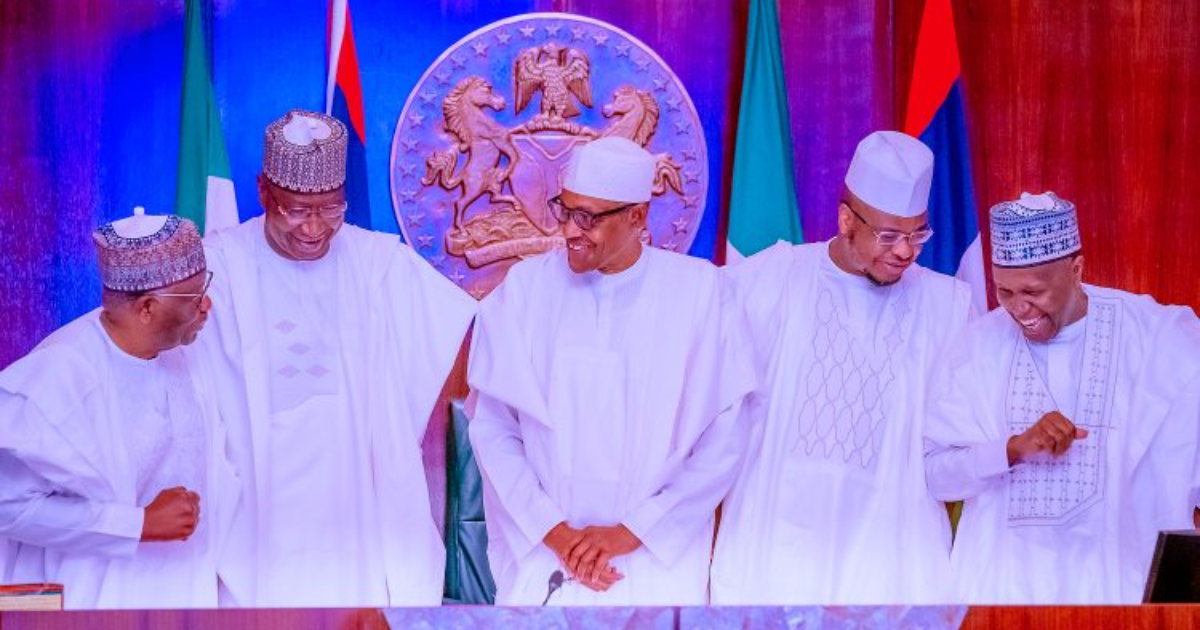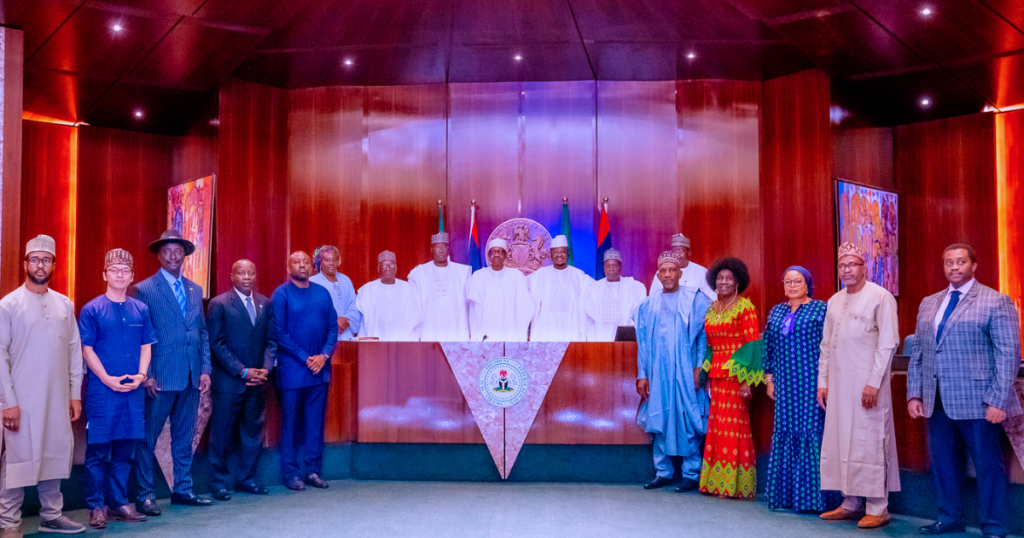Nigerian Gov’t Inaugurates 27-man Council on Digital Economy to Improve Ease of Doing Business

In the wake of the country’s raking 131 out of 190 economies in the ease of doing business, per World Bank annual ratings, Muhammadu Buhari, the President of the federal republic of Nigeria, has inaugurated the Presidential Council on Digital Economy and E-government.
The administration promised to continue to take advantage of digital technologies to transform every sector of the economy.
The President has equally directed Prof Isa Ali Ibrahim (Pantami), the Minister of Communications and Digital Economy, to chair the Council on his behalf and give regular updates.
According to Mr. Femi Adesina, Special Adviser to the President (Media & Publicity), President Buhari charged members of the Council with strengthening the government’s capacity to develop, adopt, and deploy digital technologies to make government more efficient and transparent, thereby improving Nigeria’s global standing in the ease of doing business index.
The President stated that the Council, whose members were chosen after a lengthy and meticulous process, will offer the oversight required to create a proper structure for speeding progress in the country’s digital economy and e-government implementation.
He also urged every member of the Council to view the role as a national assignment and to justify the trust placed in them to support and significantly boost Nigeria’s digital transformation.
“On November 28th, 2019, I introduced the National Digital Economy Policy and Strategy (NDEPS) and enlarged the mandate of the then Ministry of Communications to include Digital Economy.” The President stated, “The implementation of that policy and mandate has enabled us to make great progress and record some unparalleled successes.”
“The impact of the COVID-19 pandemic on the global economy showed that the steps we took in developing and implementing NDEPS were indeed timely. For example, the Information and Communications Technology sector was the fastest growing sector in both the fourth quarter of 2020 and the entire year 2020, based on the National Bureau of Statistics report. The sector’s 14.70% double-digit growth rate was instrumental in supporting our country to exit the recession triggered by the COVID-19 pandemic, far earlier than predicted by experts.”
The President noted the significant contribution of 17.92% by the ICT sector to the nation’s GDP in the second quarter of 2021 as another example of the critical impact of the digital economy on the overall economy.
“In the same vein, the growth of our digital economy sector enabled us to cope with the effect of the lock-down as both activities of the government and private sector, as well as educational activities, were able to move to online platforms,” he said.
Buhari was also pleased that the National Policy on Virtual Engagements for Federal Public Institutions had been approved, which helped legitimize online government meetings.

Statistic meetings such as the Federal Executive Council (FEC), Council of State, and others can now be held effectively and lawfully online.
He stated that the international comity had recognized Nigeria’s accomplishments in e-governance, including the selection of the Minister of Communications and Digital Economy as Chairman of the 2022 Forum of the highly esteemed World Summit of the Information Society.
The President also hailed the Minister and said that the Ministry has collaborated with the Korea International Cooperation Agency to establish a National e-government Master Plan, which the FEC approved in August 2019.
The President listed some of the benefits of the partnership, including the training of over 1,400 Nigerian public servants on e-governance in both Nigeria and South Korea; the establishment of an E-Government Training Centre, which will be handed over to the Federal Government in November 2019, and the completion of Phase II of the e-government Project – “Project for Building Foundations Towards Digital Governance in Nigeria (2020-2026).”
Prof. Pantami said in his remarks that the NDEPS, which was launched in 2019, provided for forming a Presidential Council to coordinate the creation of an indigenous digital economy.
The Minister stated that the sector had provided ICT assistance to 1,667 institutions at the Federal and sub-national levels in the previous two years, describing the execution of NDEPS for a digital Nigeria as highly successful.
He also stated that the Ministry’s recent spectrum auction generated over 400% revenue for the Federal Government and that two virtual institutions established by the government had trained over 500,000 Nigerians on digital and emerging technologies.
The members of the 27-member committee chaired by Pantami on behalf of the President are as follows: Muhammad Inuwa Yahaya, Governor of Gombe State; Nasir Ahmed El-Rufai, Governor of Kaduna State; Abdullahi Sule, Governor of Nasarawa State; Godwin Obaseki, Governor of Edo State; Babajide Sanwo-Olu, Governor of Lagos State; and Senator Hope Uzodinma, Governor of Imo State.
Dr. Zainab Shamsuna Ahmed, Minister of Finance, Budget, and National Planning; Otunba Richard Adeniyi Adebayo, Minister of Industry, Trade, and Investment; and Dr. Folasade Yemi-Esan, Head of Civil Service, are among the others.
The importance of Digital Economy and E-governance goes beyond improving the ease of doing business to digitally transforming every other sector of the economy through the use of technology which will improve the country’s GDP, create employment opportunities for the terming youth as well as time-saving and value addition to the citizenry’s standard of living.
